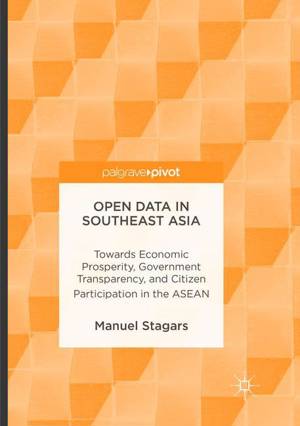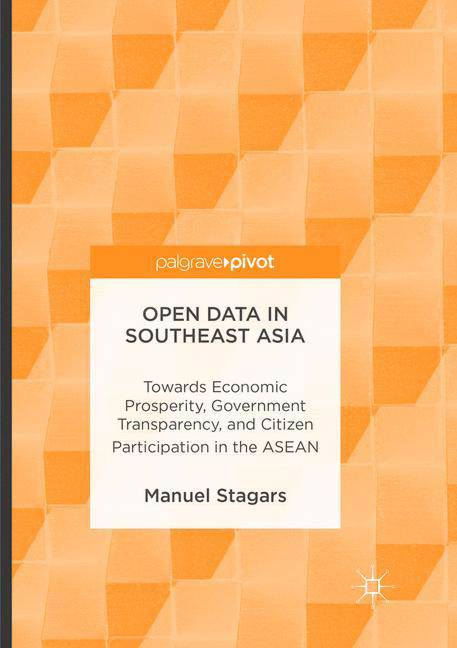
- Afhalen na 1 uur in een winkel met voorraad
- Gratis thuislevering in België vanaf € 30
- Ruim aanbod met 7 miljoen producten
- Afhalen na 1 uur in een winkel met voorraad
- Gratis thuislevering in België vanaf € 30
- Ruim aanbod met 7 miljoen producten
Open Data in Southeast Asia
Towards Economic Prosperity, Government Transparency, and Citizen Participation in the ASEAN
Manuel Stagars
Paperback | Engels
€ 65,99
+ 131 punten
Uitvoering
Omschrijving
This book explores
the power of greater openness, accountability, and transparency in digital
information and government data for the nations of Southeast Asia. The author demonstrates
that, although the term "open data" seems to be self-explanatory, it involves
an evolving ecosystem of complex domains. Through empirical case studies, this
book explains how governments in the ASEAN may harvest the benefits of open
data to maximize their productivity, efficiency and innovation. The book also
investigates how increasing digital divides in the population, boundaries to
civil society, and shortfalls in civil and political rights threaten to arrest
open data in early development, which may hamper post-2015 development agendas
in the region. With robust open data policies and clear roadmaps, member states
of the ASEAN can harvest the promising opportunities of open data in their
particular developmental, institutional and legal settings. Governments, policy
makers, entrepreneurs and academics will gain a clearer understanding of the factors
that enable open data from this timely research.
the power of greater openness, accountability, and transparency in digital
information and government data for the nations of Southeast Asia. The author demonstrates
that, although the term "open data" seems to be self-explanatory, it involves
an evolving ecosystem of complex domains. Through empirical case studies, this
book explains how governments in the ASEAN may harvest the benefits of open
data to maximize their productivity, efficiency and innovation. The book also
investigates how increasing digital divides in the population, boundaries to
civil society, and shortfalls in civil and political rights threaten to arrest
open data in early development, which may hamper post-2015 development agendas
in the region. With robust open data policies and clear roadmaps, member states
of the ASEAN can harvest the promising opportunities of open data in their
particular developmental, institutional and legal settings. Governments, policy
makers, entrepreneurs and academics will gain a clearer understanding of the factors
that enable open data from this timely research.
Specificaties
Betrokkenen
- Auteur(s):
- Uitgeverij:
Inhoud
- Aantal bladzijden:
- 192
- Taal:
- Engels
Eigenschappen
- Productcode (EAN):
- 9783319812137
- Verschijningsdatum:
- 31/05/2018
- Uitvoering:
- Paperback
- Afmetingen:
- 148 mm x 12 mm
- Gewicht:
- 291 g

Alleen bij Standaard Boekhandel
+ 131 punten op je klantenkaart van Standaard Boekhandel
Beoordelingen
We publiceren alleen reviews die voldoen aan de voorwaarden voor reviews. Bekijk onze voorwaarden voor reviews.









